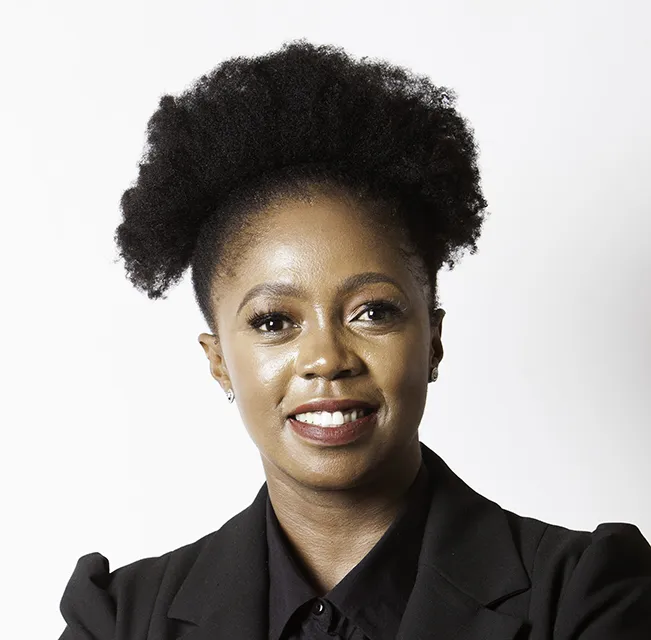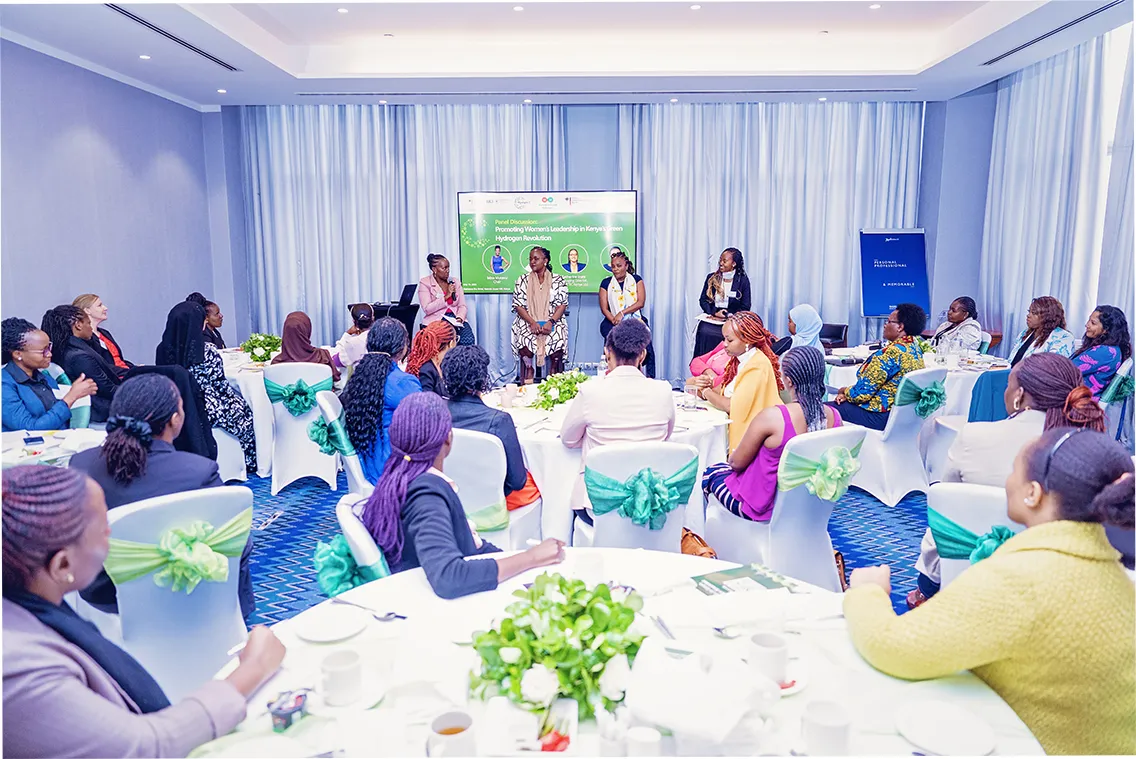This article was produced with the support of DMG Events
Africa is uniquely positioned to become a global leader in sustainable energy, thanks to its abundant renewable resources. The continent boasts vast sunlight, strong winds, and extensive coastlines, particularly in countries like South Africa and Namibia. These factors create significant opportunities for developing green hydrogen. As a result, many African countries are capitalising on this opportunity and working to advance in the green hydrogen and Power to X economy. However, despite the positive energy security outlook in Africa and globally, women remain severely underrepresented across various management and administrative levels in the renewable energy sector. This is primarily due to a number of historic barriers to entry.
Barriers and opportunities for women in the energy sector
Globally, women represent only 16% of the workforce in the energy sector, despite making up 40% of the global workforce. According to a report by the International Energy Agency (IEA) their representation is even lower at management levels due to various barriers women face across the economy. These barriers include lack of access to information and knowledge about the sector and biases in the workplace that make it hard to manage both a career and a family – exerting additional pressure on their professional capacity.
Energy security and access issues in Sub-Saharan Africa further disproportionately impact women and children, limiting their educational opportunities, earning potential and ability to start businesses. It is therefore crucial to address the challenges within the energy sector while prioritising women’s active participation, particularly as the sector undergoes significant transformation. Acknowledging these challenges, an increasing number of countries are implementing practical measures to tackle energy sector issues and advance gender equality.
The role of overnment and business in gender mainstreaming
To address gender gaps, a growing number of countries are integrating gender-related targets into their policy and regulatory frameworks. Between October 2021 and October 2022 seven countries in sub-Saharan Africa made significant strides in enhancing women’s participation in their economies. Gabon and Côte d’Ivoire have emerged as leaders, implementing multiple reforms to improve women’s access to employment and finance. Many African countries are now incorporating gender considerations into various energy sector policies and regulations, thereby increasing pressure on organisations to become more gender inclusive.
What schools and universities can be doing to get ahead of the curve
Schools, universities and research institutions play a critical role in advancing women in science, technology, engineering, and mathematics (STEM). There has been significant growth in the number of women graduating in STEM-related fields. A recent report by Times Higher Education and the United Nations Scientific, Cultural, and Educational Organization (UNESCO) indicated that 47% of STEM graduates at African universities, both undergraduate and postgraduate, are women, making Africa one of the leading continents for female STEM graduates. However, women are still outnumbered at both the student and academic staff levels. What can be done better to improve this, though, is to invest in empowering schools and educators in schools with the necessary resources to enable learners to engage with renewable energy sources.
What civil society can be doing better to advocate for a more harmonised gender balance
Civil society plays a crucial role in the energy transition by promoting public awareness and understanding of the benefits of a just energy transition. They engage with communities to educate them about the impacts of conventional energy sources and the importance of shifting towards sustainable alternatives. Civil society organisations are also responsible for spreading awareness and ensuring that community interests, particularly those of women, are represented during stakeholder engagements.
To further advocate for a more harmonised gender balance, civil society should require accountability from project developers by introducing mechanisms that will see the rise of female representation at community engagement level of all new projects. Not only will this stimulate the local economy, it will also foster greater collaboration between government, civil society and private sector.
Join us at the WiGH Africa Chapter launch on 3 Sept. 2024 at Avani Stratos Rooftop – Windhoek, Namibia
As part of efforts to spread awareness and drive important discussions, the Global African Hydrogen Summit will be held in Windhoek, Namibia, from 3 to 5 September 2024. Under the theme “From Ambition to Action: Fuelling Africa’s Green Industrial Revolution” the Summit will feature heads of state, African and global ministers, and representatives from across the energy value chain and from over 65 countries. This Summit is a significant step forward as it is also serving as a platform to launch the Women in Green Hydrogen (WiGH) Africa Chapter. WiGH is a nonprofit organisation dedicated to increasing women’s participation in the emerging green hydrogen economy. The platform offers mentorship programmes, an expert database, training sessions and various events aimed at information sharing and capacity-building specifically for women.
To be part of the Global Africa Hydrogen Summit, register at www.globalafricanhydrogensummit.com and please go to www.women-in-green-hydrogen.net to join Women in Green Hydrogen.

 Sign in with Google
Sign in with Google 



